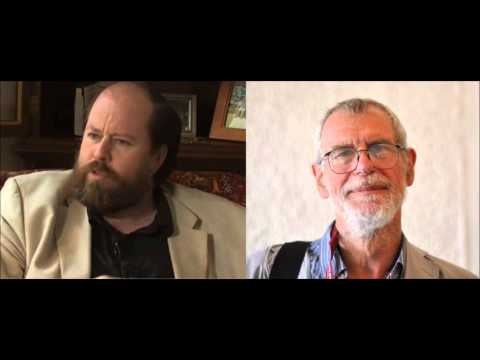Among those who have never heard this recording, I could have included myself until an hour ago. The conversation took place not long before I fell ill for a period of years as a result of exposure to especially toxic molds (as recounted in Roland in Moonlight), back in early 2014. By the time it appeared, I was far too sick to care, or even to remember that the conversation had taken place.
In any event, it was a good exchange, I find, with a very gracious and intelligent atheist thinker. I revive it and post it here because it covers many topics that I will be addressing here in several articles and recorded conversations in weeks and months to come: atheism and agnosticism, classical theism, the metaphysics and ontology of such theism, the “hard problem” of consciousness, and the relation between faith and moral commitment.




This is completely unrelated to anything regarding this conversation. My apologies. Feel free to delete this extraneous comment. It's just that I am reading War and Peace for the first time in a book club at work and found something exciting there to me. In Vol. 4, Part III, Ch. 18, Tolstoy speaks of the absurd ways historians justify the actions of tyrannical men like Napoleon and it reminded me of the absurd ways that you find theologians and religious people use to justify the actions of God, in this age, and in those to come.
"When the elastic of historical argument is stretched to the breaking point, when an action flagrantly infringes anything humanity can agree to call by the name of goodness and justice, these historians take refuge in the concept of greatness. 'Greatness' seems to exclude quantification of right and wrong. A great man knows no wrong. There is no atrocity that could be laid at the door of a great man.... 'There is only one step from the sublime to the ridiculous.' And it never enters anybody's head that to acknowledge greatness as something existing beyond the rule of right and wrong is to acknowledge one's own nothingness and infinite smallness."
Given this, I think Tolstoy was certainly a universalist. I'd be surprised if he wasn't. Just wanted to share a beautiful passage from a wonderful book and see what your thoughts were on it.
This is one of my absolute favourite public discussions, one to which I return often (though I do wish I could understand everything you said!!!). If I recall correctly, Patrick does something rather entertaining such that it causes you to burst out in a rather delightful kind of laughter, to which Dr Norman indeed respons rather graciously!
All my love, and prayers.